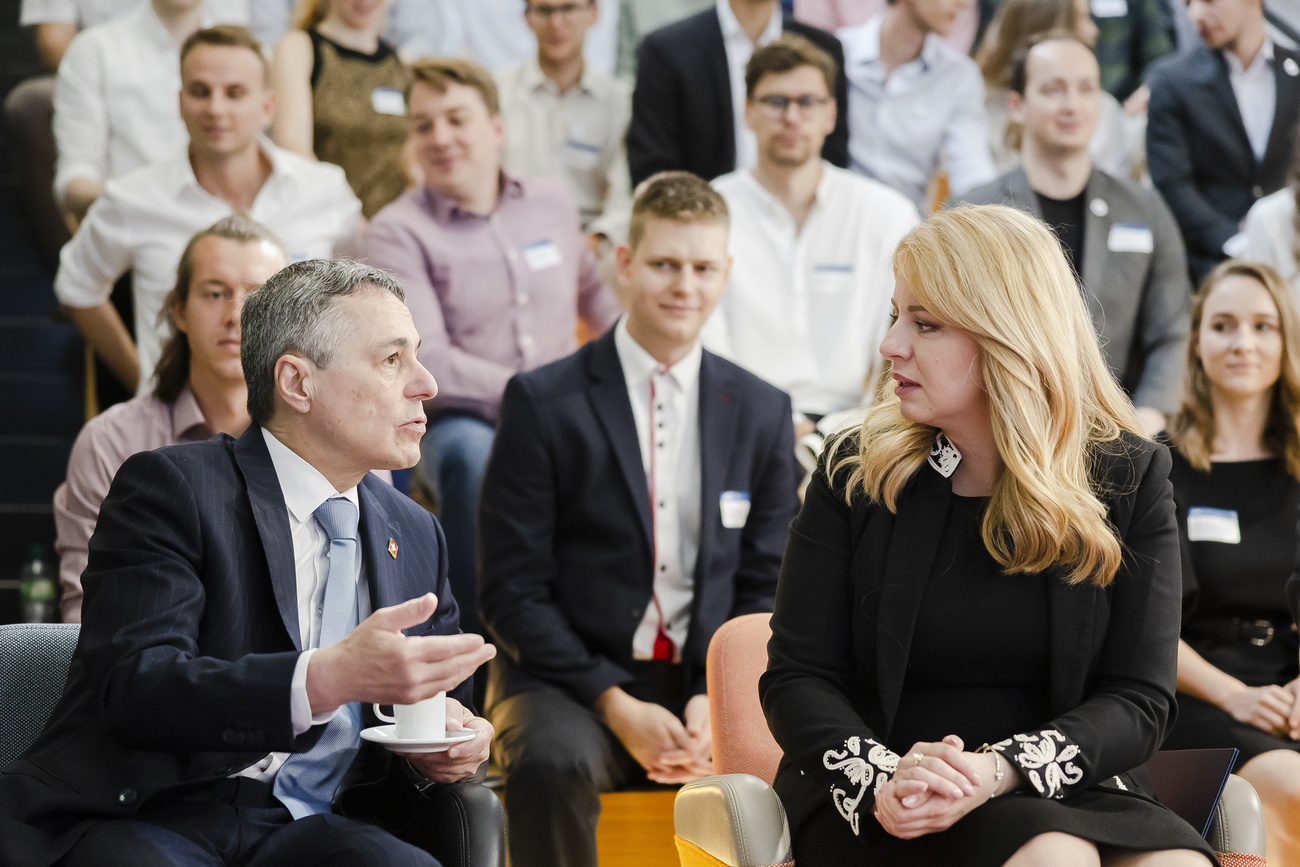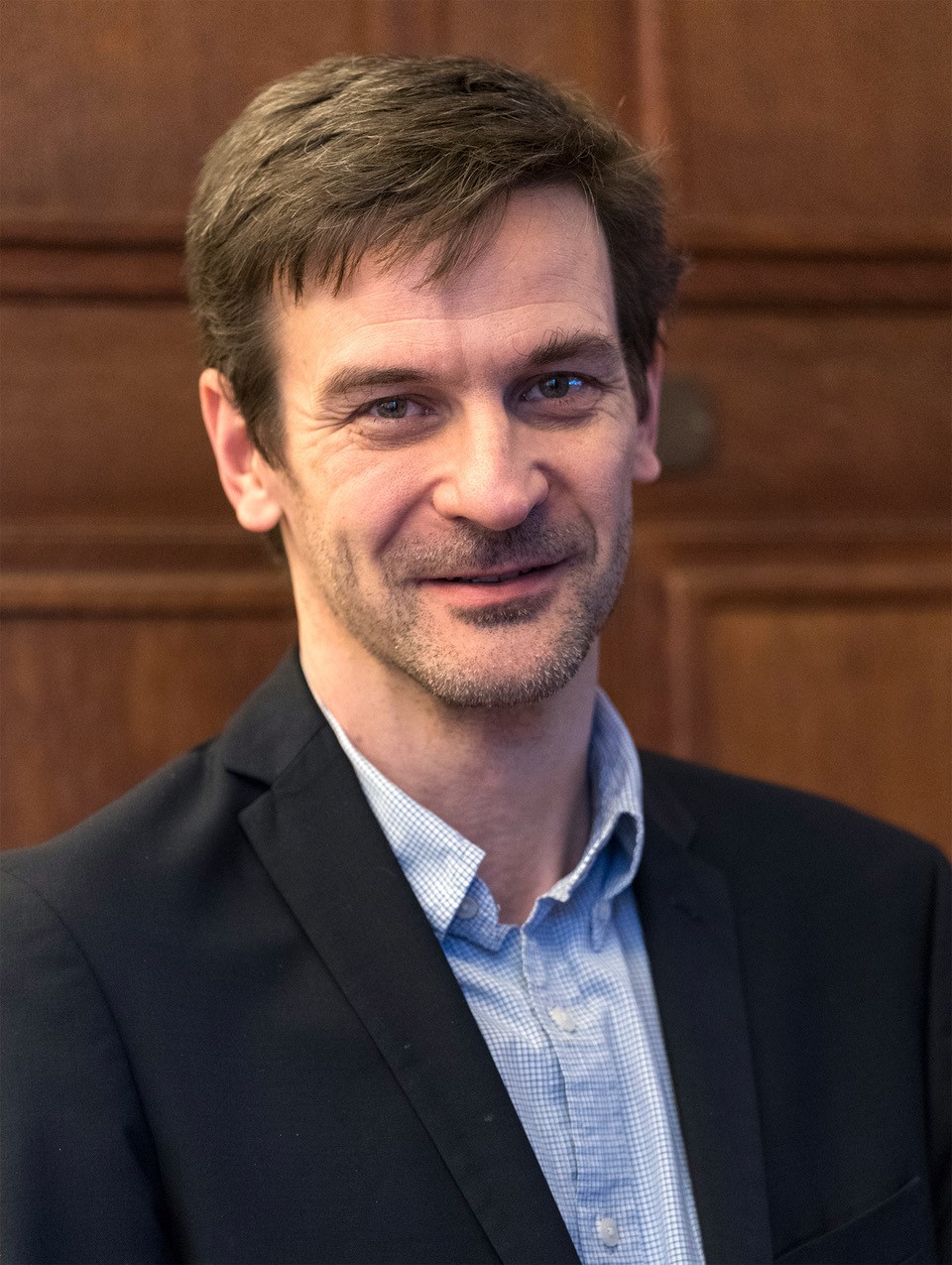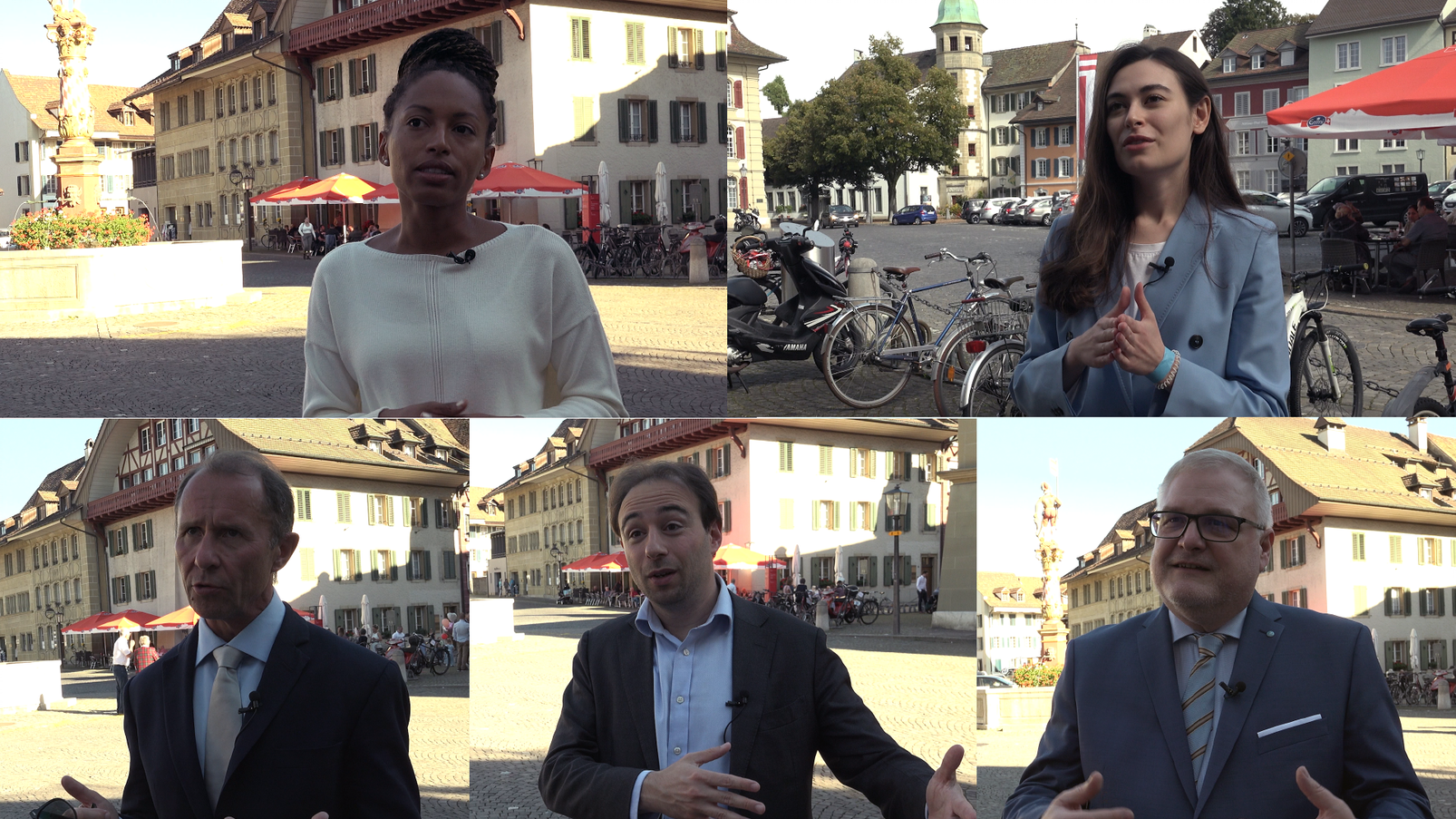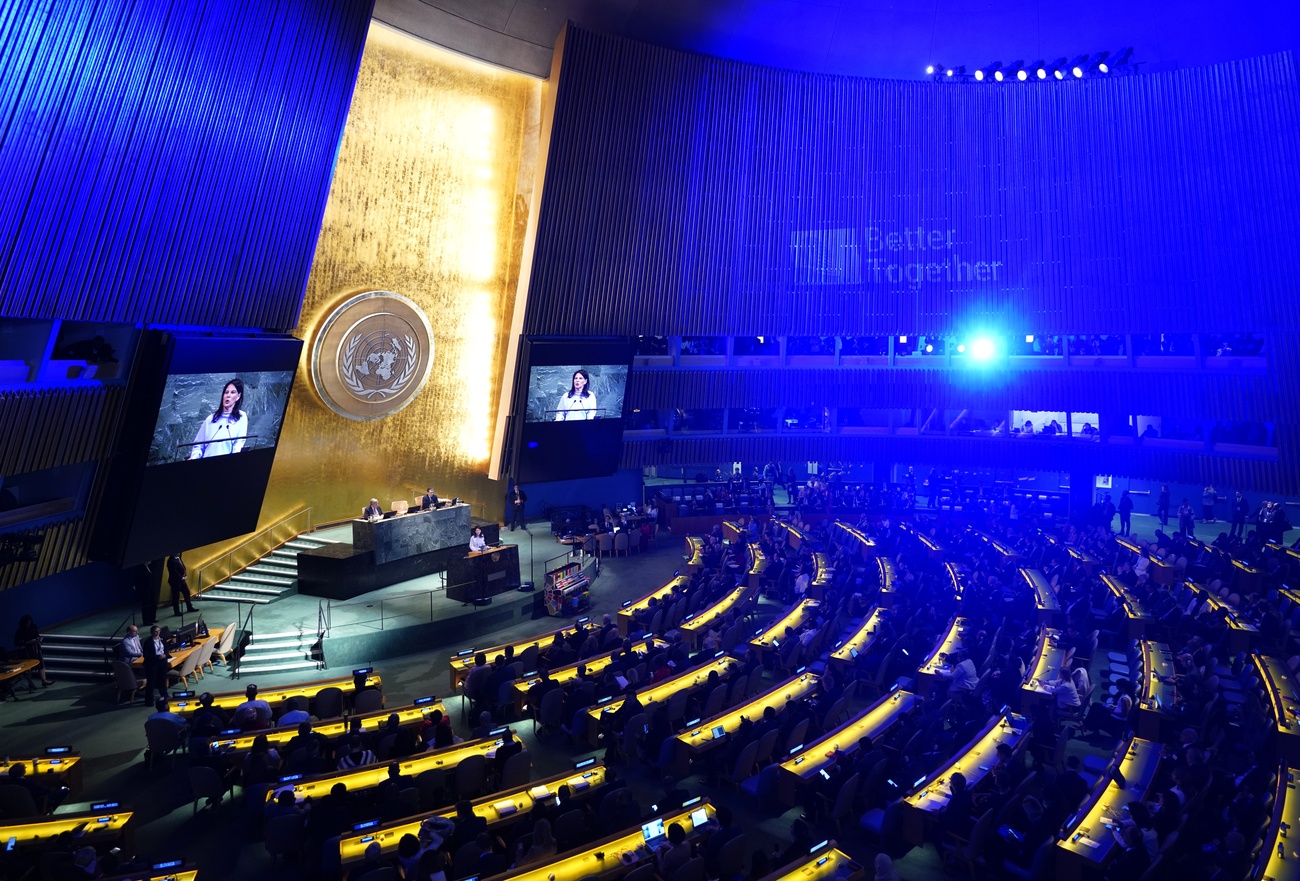
Slovakia follows the laborious Swiss path of multiplying popular initiatives

In Switzerland, attempts to trigger new elections by means of popular initiatives are rare and have always failed. Next Sunday, Slovakians will have their say on the question. How likely is it that the people's right will prevail ? An analysis by Bruno Kaufmann.
The large luminous billboards lining the roads leading to the Slovak capital Bratislavia are hard to miss. “Banco Casino”, “Olympic Casino”, “Topname Club”; they an invitation for tourists from neighbouring countries to gamble. Hidden among the billboards are posters of former Prime Minister Robert Fico, campaigning for “Áno” (“Yes”) for the upcoming constitutional referendum.
The referendum in Slovakia was unsuccessful. It did not reach the necessary threshold of 50% voter turnout. Only 27.25% of those eligible to vote took part.
Fico and his left-wing populist Smer party are as much a part of recent Slovak history as the regular constitutional referendums. Some 19 have taken place over the past 30 years and they have been an important feature of dealing with political disagreements.
Hurdles to initiate them are high. A total of 350,000 valid signatures must be collected from the less than 5.5 million inhabitants of the country. That corresponds to almost 8% of those eligible to vote. By comparison, a valid constitutional initiative in Switzerland requires just under 2% of signatures.

More
What’s a people’s or citizens’ initiative?
On January 21, the population will answer the question whether the constitution should be altered to allow early elections to be called via popular initiative or a majority vote in parliament.
“A yes to this initiative would destabilise Slovak democracy,” argues Milan Nič in an interview with SWI swissinfo.ch. Nič, a Slovak who works in Berlin as an expert on Eastern Europe at the German Council on Foreign Relations, is a close observer of the local political scene. “Although our political culture is more similar to that of Hungary than to that of the Czech Republic, for example, the country with which we formed a common state between 1918 and 1993, we are a much more pluralistic society than Hungary,” Nič stresses.

This assessment is shared by the rector of Budapest’s Andrássy University, the Swiss Zoltán Tibor Pállinger: “There has been a change of power in Slovakia, and there is an alternative in the presidential palace in the person of Zuzana Čaputová”. A lawyer and environmental activist, Čaputová has been the country’s president since 2019. As a comparison Viktor Orban has been Hungary’s Prime Minister since 2010 and has significantly eroded his country’s democratic system over the past decade.
In addition – according to Pállinger – Slovakia has a much stronger and more independent civil society than Hungary: “This is the main reason for the resilience of democracy in the country.”

More
A just democracy is a robust democracy
Since Slovakia became an independent state thirty years ago, opposition parties and civil society alliances in Slovakia have repeatedly succeeded in gathering the necessary signatures for a valid constitutional referendum. For the upcoming ballot, the Alliance for the Referendum managed to collect more than 600,000 signatures within a few months. Yet few proposals succeed once they go to popular vote “The leading opposition politicians know full well that they will not achieve the necessary majorities with their proposal,” stresses Nič, adding: “Instead, they are using the process as a mobilisation tool.”
The Slovak “Ständemehr” (majority of the cantons)
As in Switzerland, a simple majority of those voting in a constitutional referendum in Slovakia is not enough for a legally binding decision. The Slovak constitution also requires a participation of a minimum of 50% of those eligible to vote. In Switzerland, a constitutional amendment requires not only a popular majority but also the so-called “Ständemehr” or an affirmative majority in a majority of the cantons.
This difference in the process of constitutional referendums makes things considerably easier for those in Slovakia who oppose the upcoming proposal to change the country’s constitution. By remaining passive or even calling for a boycott of the vote, they contribute to the fact that, in the end, those who vote “no” and those who do not vote both contribute to the formal failure of a proposal.
Of the 19 constitutional referendums held since 1993, only one narrowly surpassed the 50 % threshold – on Slovakia’s accession to the European Union in 2003. And even this was only possible at the time because almost all political parties had campaigned both for EU accession and for participation in the referendum. Moreover, the vote was exceptionally held over two days rather than the usual one.
The indirect role of direct democracy
In Switzerland too the rate of successful popular initiative is low: just ten percent. But just as in Switzerland the strength of this democratic tool is the indirect role it plays in Slovak political life.
The success of these mechanism is not so much in the outcome of the vote as in the indirect impact of the debate on the country’s political life.
In Switzerland the population has also been repeatedly asked whether they agree to prematurely revoke the mandate of an elected parliament. Proposals from various political camps ultimately failed by a clear margin.
As early as 1879, Wilhelm Joos, a member of the Schaffhausen National Council and globetrotter, asked for early elections with his “Bank Bill Initiative”. In the mid-1930s, conservative-fascist circles launched a frontal attack on democracy with the “Total Revision Initiative”, which sought to replace the collegial authority of the Federal Council [Swiss government] with an authoritarian regime. In a vote held on of September 8, 1935, almost three quarters of the electorate opposed this attempt.
According to Polish political scientist Elżbieta Kużelewska, who heads the Centre for Direct Democratic Studies at the University of Białystok, popular initiatives in Slovakia function as a “stress test for democracy.” In the run-up to this week’s vote, the president and the Constitutional Court repeatedly played an important role: before President Čaputová called the vote, she had the snap election initiative legally examined. A first attempt by the initiators in 2021 was declared invalid by the court, and in the second attempt – which is the current proposal – only one of two questions originally suggested was allowed.
Please shut down our casinos
Three decades after gaining state independence, it is now clear that Slovakia is taking the laborious path of decision-making via direct democratic popular rights. This is the same path that Switzerland has been following for much longer under completely different conditions.
The constitutional referendum serves as an indicator of public opinion and inputs discussions in parliament. This was the case recently for a recent local popular initiative on the prohibition of “money gambling casinos” in Bratislava. After the corresponding initiative “Zastavne Hazard” had been signed by almost every fourth inhabitant of the capital, the city parliament voted 39:1 in favor of putting an end to the lucrative business: the casinos and their intrusive advertising have two years to disappear from the cityscape.
Edited by Mark Livingston, VM.

In compliance with the JTI standards
More: SWI swissinfo.ch certified by the Journalism Trust Initiative



























You can find an overview of ongoing debates with our journalists here . Please join us!
If you want to start a conversation about a topic raised in this article or want to report factual errors, email us at english@swissinfo.ch.